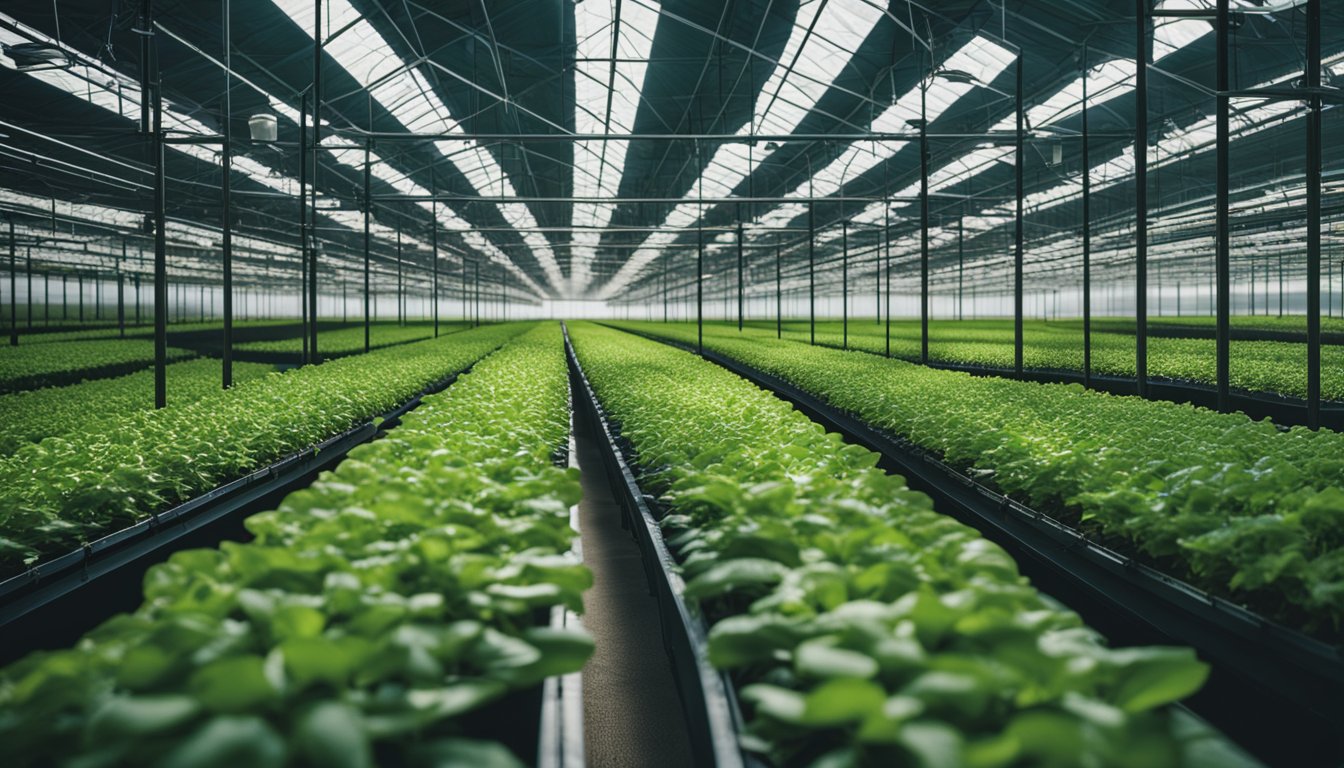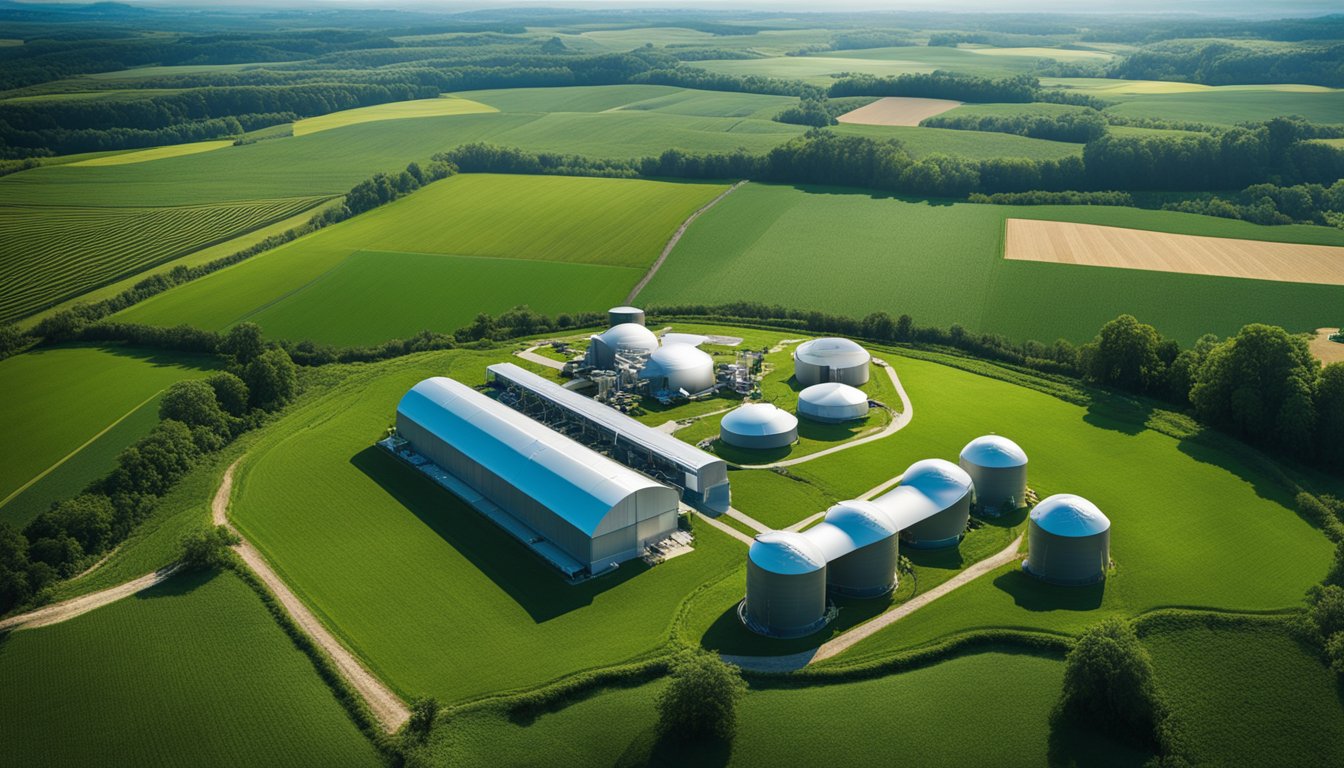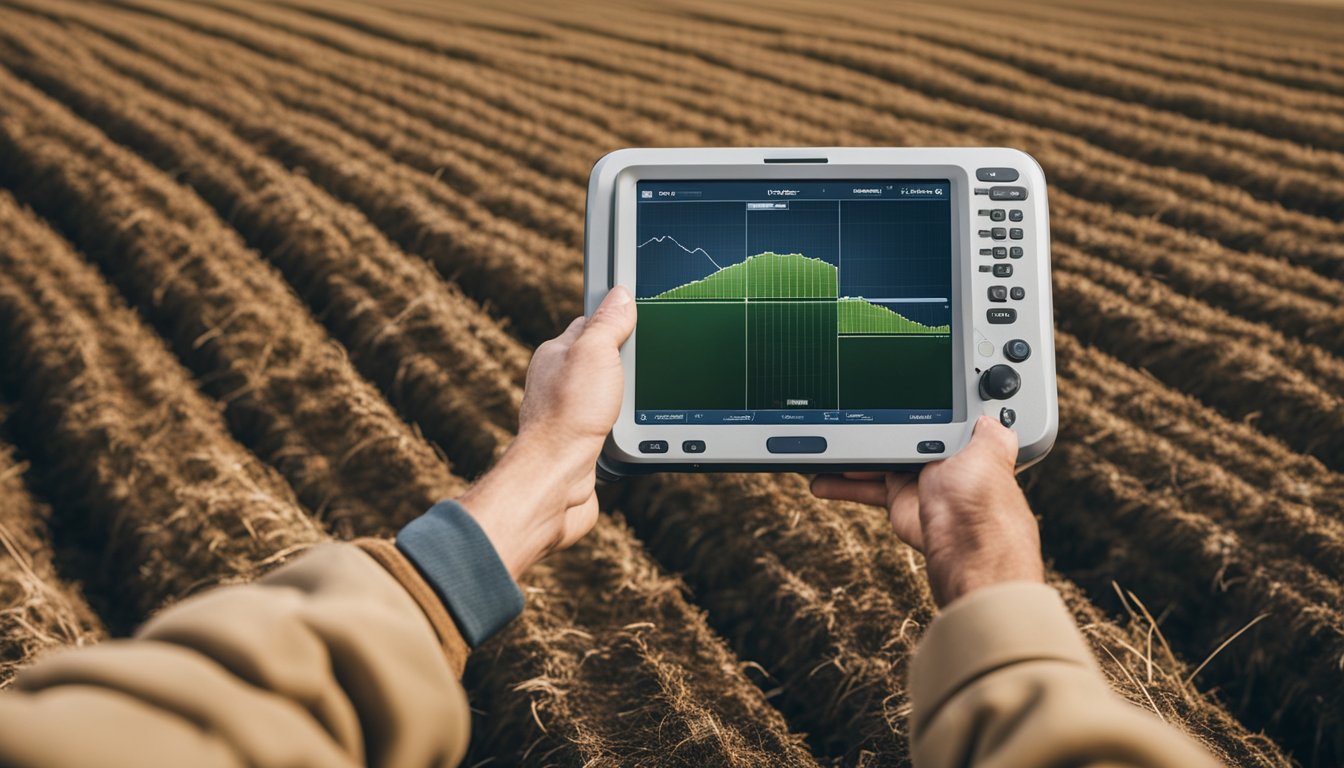Late updated: 30 Oct 2024 08:10
Written by: Oliver Bennett
Innovative Digital Farming Trends in the UK: Revolutionising Agriculture
Innovative digital farming trends in the UK are reshaping the agricultural landscape with significant advancements that promise to enhance productivity, sustainability, and market integration. The integration of precision agriculture and smart farming technology is revolutionising how we manage livestock and crops, unlocking new levels of efficiency and sustainability. With initiatives like the £800-million rural broadband project and the emergence of world-class research and business innovation networks, farmers across Britain are better equipped than ever to optimise their operations.

From smart livestock management systems to advanced crop yield analytics, the technology enabling these changes is both diverse and profound. Digital farming tools provide real-time data and insights, facilitating informed decision-making that drives productivity while safeguarding the environment. These innovations are part of a broader effort to ensure the UK food system remains resilient and competitive on a global scale.
New projects in the digital agriculture space, like the Digital Dairy Chain, are pushing the boundaries of what's possible. They're creating not just technological progress, but significant employment and economic opportunities. These projects illustrate the momentum behind agritech innovation and the UK's commitment to a sustainable agricultural future.
Key Takeaways
- Digital farming boosts productivity and sustainability.
- Emerging technologies transform livestock and crop management.
- UK agriculture is advancing through innovation initiatives.
Emerging Technologies in UK Agriculture

The realm of UK agriculture is witnessing transformative changes with the integration of digital tools. These technologies enhance precision in farming, elevate livestock management, and streamline farm operations to ensure higher efficiency.
Precision Agriculture and Data Analytics
Precision agriculture is redefining our approach to crop management. By employing GPS-guided machinery and drones, we can optimise field operations with remarkable accuracy. Remote sensing is another critical component, allowing us to gather detailed information about crop health and soil conditions. This wealth of data enables us to apply inputs like water, fertilisers, and pesticides with precision, significantly improving crop yields while reducing waste and environmental impact.
Data analytics platforms play a vital role by processing vast amounts of information to offer actionable insights. Such platforms help us predict weather patterns, monitor crop performance, and make effective decisions. The use of artificial intelligence and machine learning enhances these predictions, making precision agriculture more efficient and adaptive to changing conditions.
Advancements in Crop and Livestock Management
In crop production, robotics and smart sensors are leading innovations. Robotic systems are capable of performing tasks like planting, weeding, and harvesting with pinpoint accuracy. These advancements allow for continuous monitoring and maintenance, thus supporting better crop health and productivity.
When managing livestock, Internet of Things (IoT) devices and smart wearables are revolutionising the sector. These tools provide real-time data on livestock health, feeding habits, and environmental conditions. Such information lets us adopt proactive strategies, ensuring optimal conditions and detecting health issues early. Improved livestock management translates to better welfare and higher yield in terms of milk, meat, or wool production.
Digital Transformation of Farm Management
Digital transformation involves utilising comprehensive farm management software that integrates various activities under a single platform. This software aids in tracking resource usage, managing finances, and scheduling tasks, offering an overarching view of the farm's operations. By automating routine tasks, it frees us to focus on strategic decision-making and growth initiatives.
Enhanced connectivity through initiatives like rural broadband is crucial. It allows seamless access to digital tools and platforms, ensuring that even remote farms can participate in the digital revolution. This connectivity supports scalability, allowing farms of all sizes to benefit from advanced agricultural practices.
Driving Sustainability Through Innovation

Innovation is at the heart of driving sustainability within the UK farming sector. By leveraging technology and strategic partnerships, we can enhance farming practices, secure funding, and foster research collaboration to support long-term food security.
Sustainable Farming Practices and Environmental Impact
Incorporating sustainable farming practices is crucial to reducing our carbon footprint and mitigating greenhouse gas emissions. Technologies such as precision agriculture enable us to use resources more efficiently, minimising waste and improving soil health. Carbon sequestration techniques are being adopted to capture and store atmospheric carbon, benefiting both the environment and agricultural productivity. The development of crop varieties that require less water and fertiliser further strengthens our commitment to sustainability.
Grants, Funding and Policy Support
Access to funding plays a significant role in advancing innovation. The Department for Environment, Food & Rural Affairs (DEFRA) and its Farming Innovation Programme provide substantial financial support. This funding empowers projects aimed at transforming food production through the Transforming Food Production Challenge. Such initiatives are pivotal in fostering technological advancements that drive sustainable practices. For example, the programme has already unlocked significant resources for farming innovation and automation, with grants helping to turn cutting-edge ideas into real-world applications.
Collaboration and Research for Future Food Security
Collaboration between research institutions, government bodies, and the private sector is paramount to ensuring future food security. Joint ventures and collaborative research projects help us tackle the complexities of sustainable farming. By pooling knowledge and resources, we can address challenges more effectively. These partnerships accelerate innovation in crop management, soil conservation, and smart farming technologies. Sharing insights and innovations across sectors also reduces the duplication of efforts, allowing for a more coordinated and unified approach to sustainability in agriculture.
Frequently Asked Questions

In this section, we explore some pressing questions about digital farming trends in the UK. From the latest technological advancements to the pragmatic integration strategies, our goal is to shed light on how these innovations are reshaping agriculture.
What are the latest advancements in agricultural technology within the UK?
The UK has witnessed significant developments in agricultural technology, such as the introduction of precision farming tools and advanced drone systems. These advancements aim to enhance crop monitoring and resource management.
How is digital innovation shaping the future of UK farming?
Digital innovation is transforming UK farming by enabling real-time data analysis and predictive analytics. This shift facilitates informed decision-making, optimising yields and improving sustainability. Furthermore, enhanced connectivity through rural broadband initiatives empowers farmers with better market access.
What are the most promising emerging trends in UK agriculture?
Promising trends include the adoption of zero-carbon farming practices and climate-smart agriculture. These approaches are driving sustainable growth, reducing emissions, and paving the way for environmentally conscious farming methods.
Can you identify key digital tools currently transforming UK farming practices?
Key digital tools transforming UK farming include automated machinery, IoT sensors, and AI-based analytics platforms. These technologies are streamlining operations, from soil health assessment to livestock management, enabling more efficient and productive farm management.
What strategies is the UK employing to integrate technology in agriculture?
The UK is implementing several strategies, such as investing in research and development projects and forming partnerships between tech firms and agricultural institutions. These efforts aim to foster innovation, support educational initiatives, and ensure widespread technology adoption in the sector.
Which new agricultural technologies have been adopted in the UK recently?
Recently adopted technologies in the UK comprise smart irrigation systems and vertical farming techniques. These innovations are helping to conserve water, optimise land use, and increase food production, meeting the growing demand for sustainable agricultural practices.
